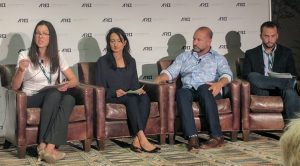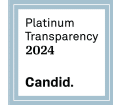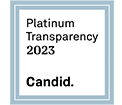
Photo credit: A. Madden
This week, the American Renewable Energy Institute (AREI) hosted their 14th annual American Renewable Energy Day summit in Colorado, and EO's CEO, Soledad Mills, spoke on a panel about the challenges and opportunities of developing renewable energy in emerging markets.
During her talk, Soledad highlighted some key insights from the Business and Human Rights Resource Centre's Investor Briefing on Renewable Energy Impacts on Communities that was published in April of this year. The briefing, co-authored with Transform Finance and Sonen Capital, emphasizes the role of investors in ensuring that the transition to a low-carbon economy does not negatively affect communities, workers and other vulnerable groups.
“We see a very strong need for a fast transition to renewable energy, but also want to ensure that the renewable energy sector and investors do not make the same mistakes as past energy (investors) in coal, oil, and gas,” said Eniko Horvath, a senior researcher with the Business & Human Rights Resource Centre. “As our future energy providers, the renewables sector has the opportunity to embed human rights at its core at a key moment to ensure a fast and fair transition to a truly clean source of energy.”
The briefing focuses on real and potential human rights impacts on local communities with case studies from emerging markets and projects in developed countries. Human rights risks for the renewables sector include Indigenous Peoples’ rights and the right to Free, Prior and Informed Consent (FPIC); labor rights; rights of women and children; and responsible supply chain management, among others. Notably, only 10% (five out of 50) of wind and hydropower companies referred to FPIC in their policy commitments, based on the Centre’s research, and three out of five of these companies that referenced FPIC, were facing allegations about this principle, suggesting a need for improvement both at the policy and implementation levels.
While the climate benefits of clean energy are clear and the risks to the environment are much lower than fossil fuels, large-scale renewables projects are industrial installations that can have profound impacts on surrounding people and ecosystems. Local communities concerned about displacement, access to water, negative impacts on traditional livelihoods, noise, traffic, biodiversity impacts, and visual impacts can prevent companies from achieving a social license to operate, which in turn can result in increased risks of project delays and interruptions.
The briefing makes the case for why investors should integrate human rights considerations early on in the investment process to safeguard against potential financial, legal, reputational and operational risks. The briefing also suggests that investing in community-led projects can help to ensure that projects respond to the visions and desires of a community and protect their control over the land.
The briefing provides links to tools and guidance, including the EO100™ Standard on Responsible Energy Development that can help investors identify and integrate human rights risk assessments into due diligence processes. EO has also developed an online due diligence platform to help companies, investors, and supply chain partners to measure and manage the environmental, social and governance (ESG) performance of energy projects based on international standards.
Soledad concluded her talk by saying, "We all want renewable energy to scale up as quickly as possible but we need to ensure a just transition that is supported by and ultimately driven by local communities in order for it to be sustainable".



You must be logged in to post a comment.